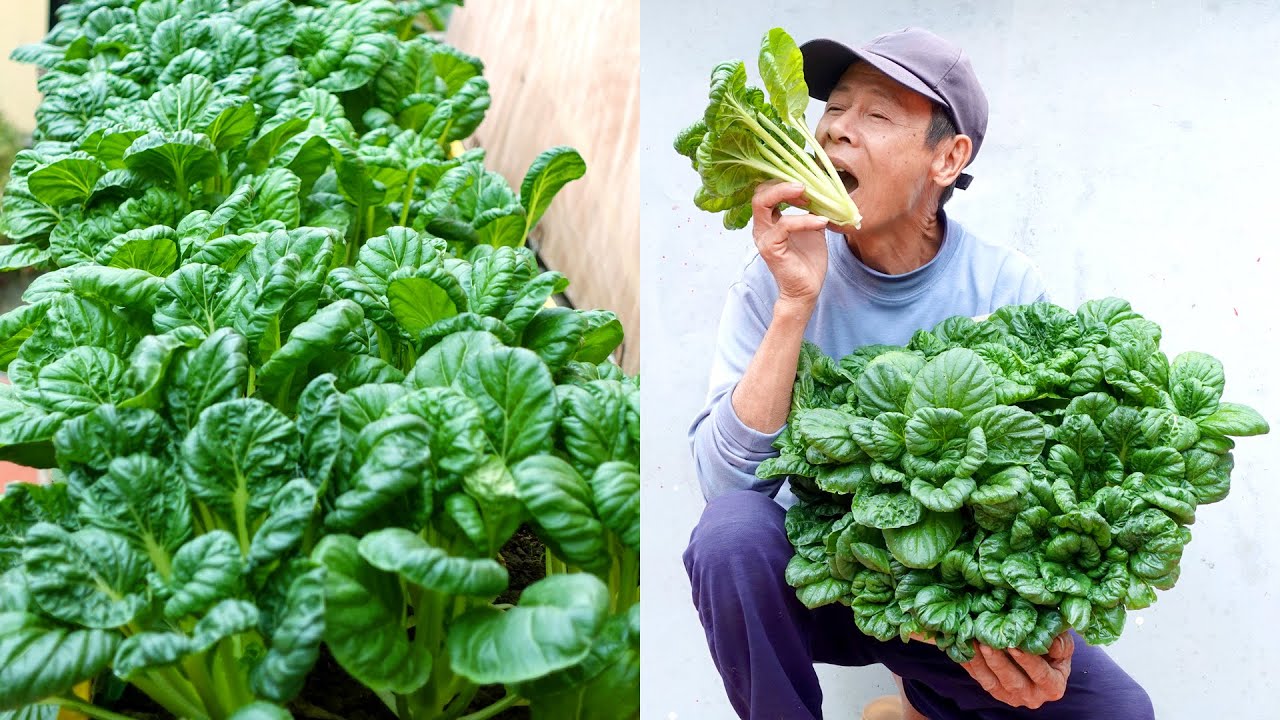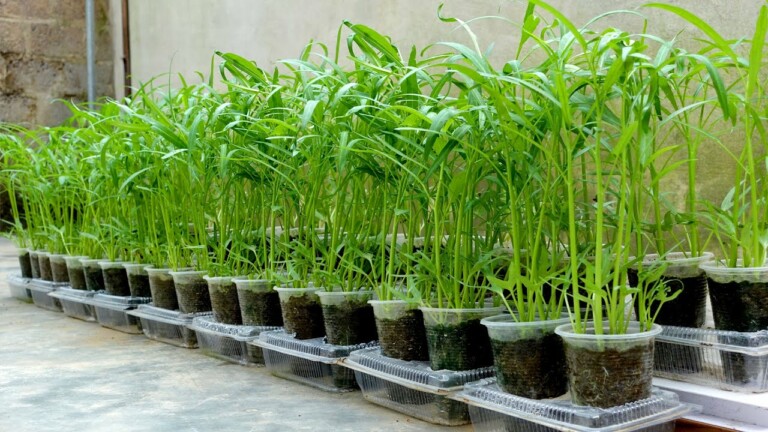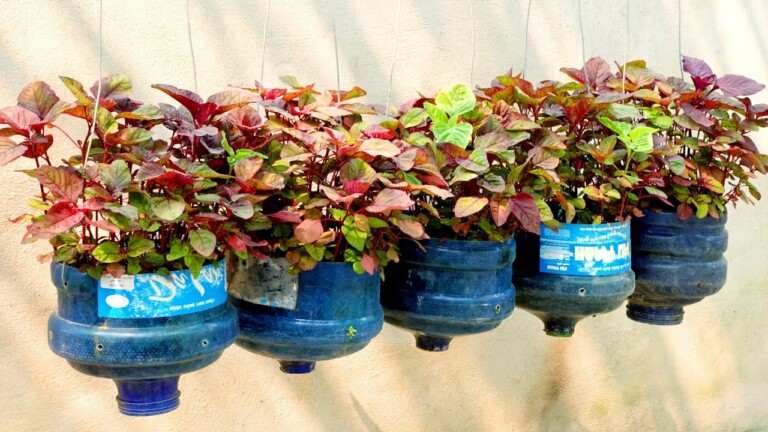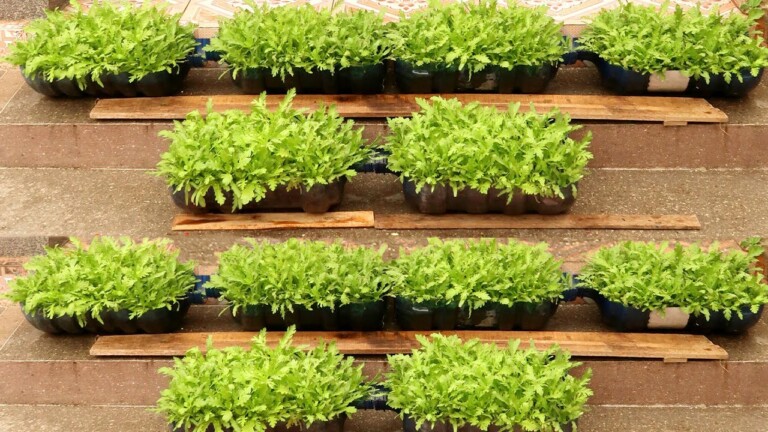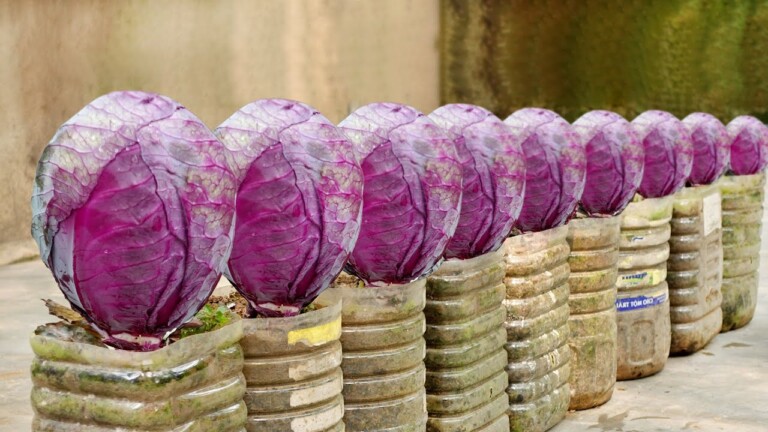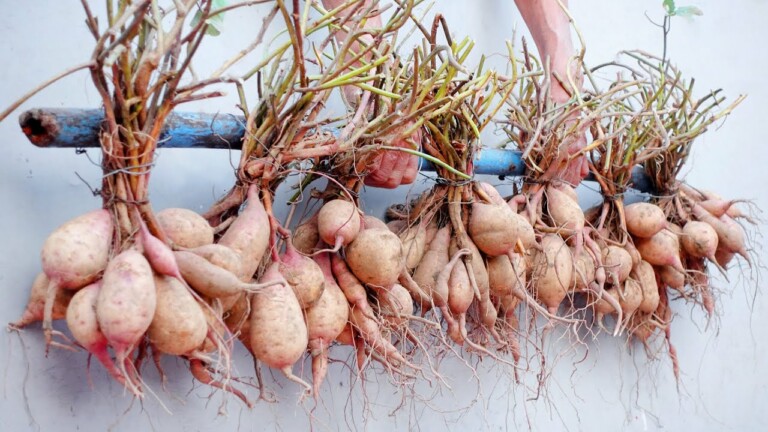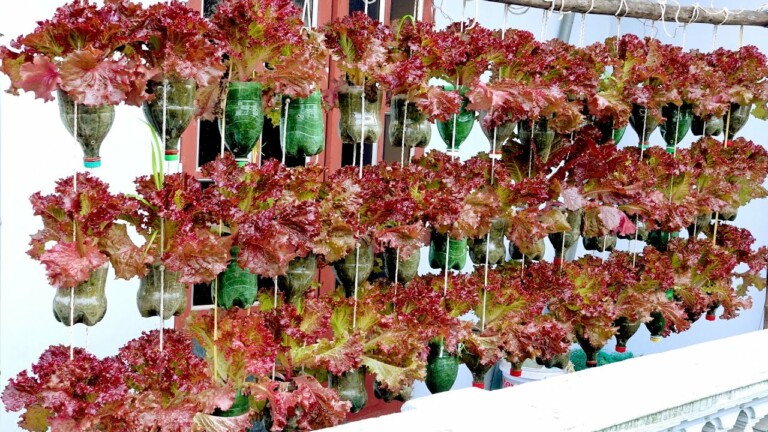Growing Cucumbers at Home doesn’t take up space and produces much fruit
Welcome to our blog post, where we will delve into the wonderful world of growing cucumbers at home. Are you looking to embark on a journey of cultivating this delightful fruit but concerned about limited space? Look no further, as we have discovered a solution that will make your gardening dreams come true. Join us as we unveil the secrets to successfully growing cucumbers right in the comfort of your own home, yielding a bountiful harvest that will leave you amazed.
Growing Cucumbers at Home: Space-Saving and Fruitful
Introduction
Are you looking for a way to grow cucumbers at home without taking up too much space? Look no further! In this article, we will share with you a unique and convenient method that allows you to yield a large amount of fresh cucumbers while utilizing minimal space. Join us as we take you through the process of growing cucumbers at home, offering creative solutions and tips along the way.
Recycling Plastic Bottles for Easy Care
One of the challenges many face when growing vegetables at home is the limited space available for plants to thrive. However, by recycling plastic bottles and adding wheels to the pot, we can easily move the cucumber plants for convenient care and garden cleaning. This innovative solution allows us to maximize the use of available space while ensuring easy mobility.
To implement this method, begin by selecting plastic bottles that are sturdy and spacious enough to accommodate the cucumber plants. Cut the bottles in half, lengthwise, and place the lower half on a small trolley or attach wheels to the base. Fill the bottle with rich soil and plant your cucumber seedling, ensuring it has enough room to grow. As the cucumber plant develops, you can easily move it around your garden, allowing for optimal sunlight and effective pest control.
Prioritizing Safety and Freshness
When growing cucumbers for personal consumption, ensuring safety and freshness is of utmost importance. That’s why we prioritize the use of organic and natural methods throughout the cultivation process. By avoiding the use of pesticides and chemical fertilizers, we can guarantee that our cucumbers are free from harmful toxins and chemicals.
Composting for Nutrient-Rich Fertilizer
To provide our cucumber plants with the essential nutrients they need, we compost spoiled vegetables in small plastic bottles. This allows us to create nutrient-rich fertilizer without the need for extensive composting methods or large outdoor compost bins. Simply cut the top off a plastic bottle, add your spoiled vegetables, and seal it tightly. Over time, the vegetables will decompose, converting into a natural fertilizer that can be easily applied to your cucumber plants. This sustainable approach not only reduces waste but also ensures the health and vitality of your cucumber crop.
Pest Prevention with Powdered Lime
Pests can pose a significant threat to our cucumber plants. To combat this, we sprinkle powdered lime around the base of the plants. Lime acts as a natural deterrent for pests like slugs and snails, effectively protecting our cucumber plants without the need for harmful chemicals. This simple and environmentally friendly solution allows us to enjoy healthy cucumbers while promoting a balanced ecosystem in our gardens.
Conclusion
Growing cucumbers at home doesn’t have to be a challenge, even if you have limited space. By implementing the methods we’ve shared, you can maximize your available space, yield a large amount of delicious cucumbers, and ensure their safety and freshness. Get started today and enjoy the satisfaction of harvesting your own homegrown cucumbers!
FAQs
-
Can I use any type of plastic bottle for growing cucumbers?
- While you can use various types of plastic bottles, it’s important to ensure they are sturdy enough to hold the soil and cucumber plants.
-
How often should I move the cucumber plants using the recycled plastic bottles?
- It is recommended to move the plants every few days to expose them to different angles of sunlight and prevent soil depletion.
-
Can I add other compost materials to the small plastic bottles for fertilizer?
- Yes, you can include other compostable kitchen scraps along with the spoiled vegetables to create a more diverse and nutrient-rich fertilizer.
-
Is powdered lime safe for the cucumber plants?
- Yes, powdered lime is safe for cucumber plants and acts as a natural pest deterrent without harming the plants.
-
Where can I find more gardening tips and updates from you?
- Thank you for watching our video! For more gardening tips and updates, don’t forget to subscribe to our channel and follow us on Facebook.
